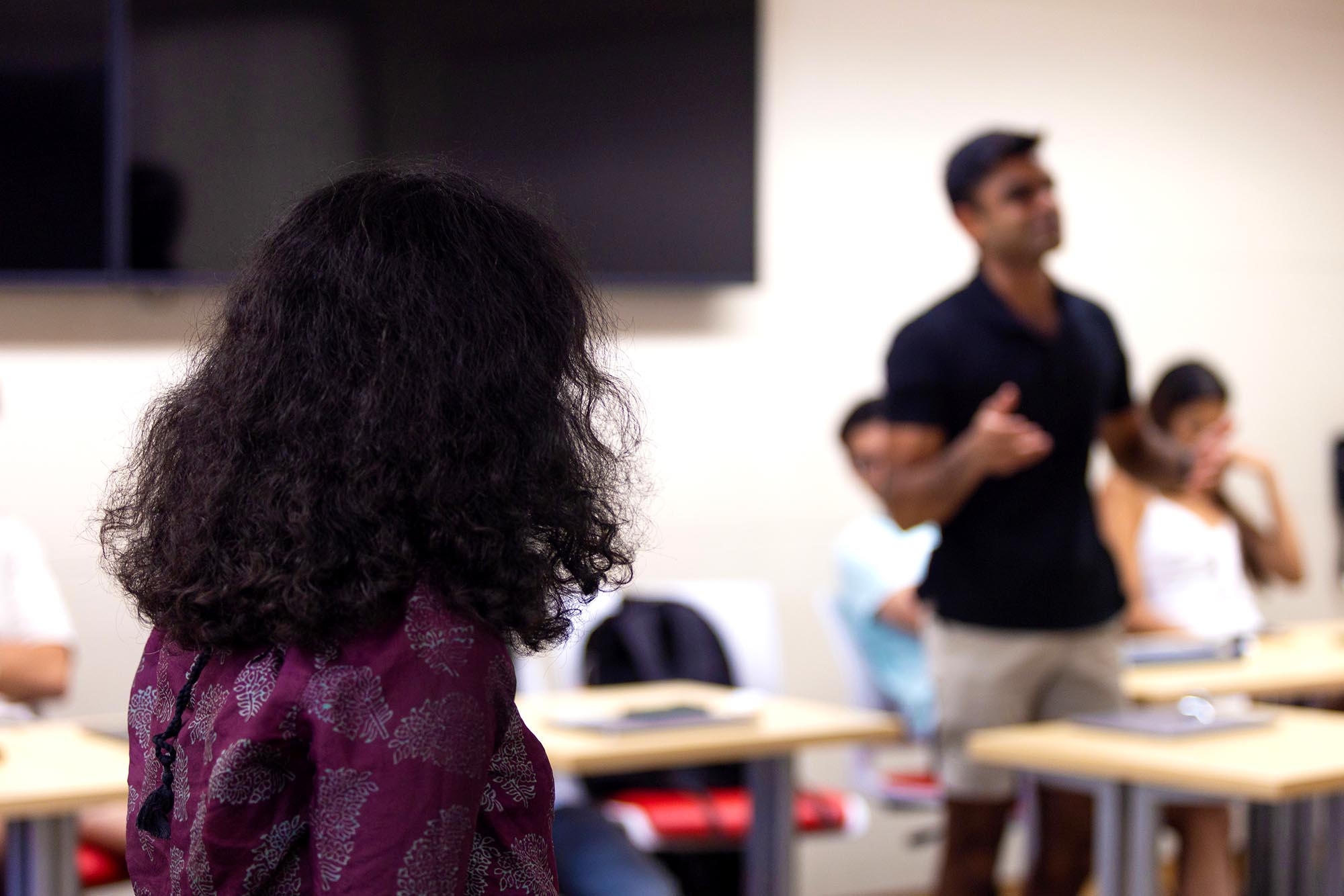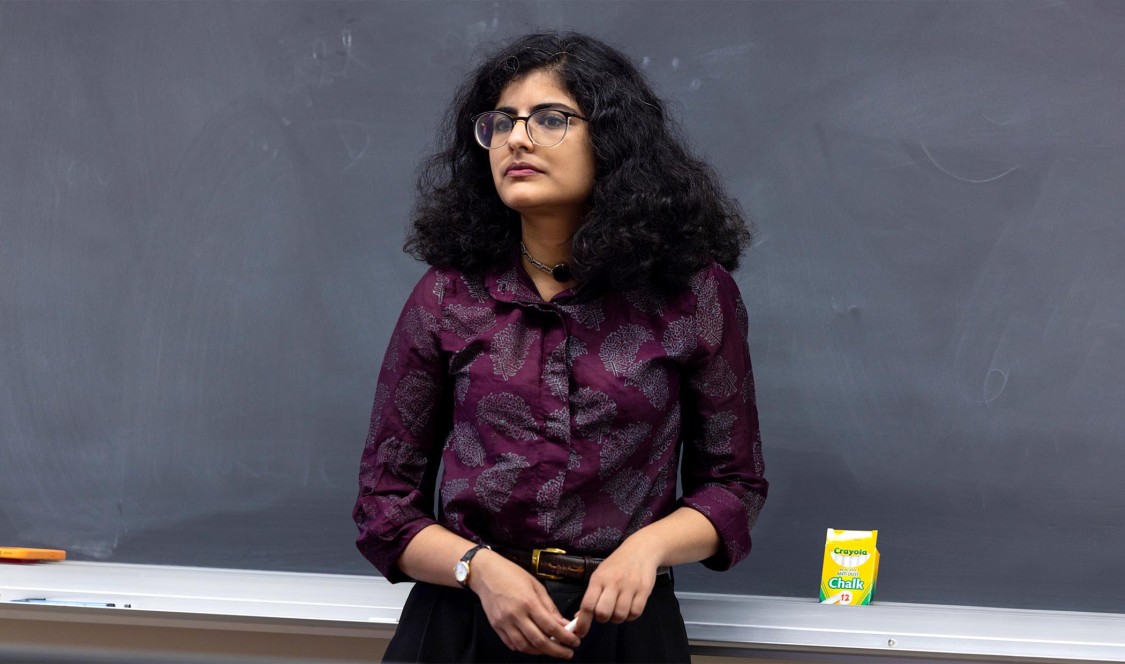For Professor Ahona Panda, teaching history at Claremont McKenna College means not just interpreting the past, but making it relevant to the present.
Since arriving at CMC in 2021, Panda has been bringing the history of modern South Asia to life for her students with syllabi that combine books, articles, films, and multimedia sources.
“A syllabus isn’t just a bunch of books thrown together, it’s a narrative. I realize how audio and video materials can be immersive to learning history. Students can read a bunch of articles about the first Indian Prime Minister, Jawaharlal Nehru, as well as his own writings, but then when they see him in a video interview, that can transport them back to an earlier period of time,” Panda said.
At CMC, she teaches courses that range from the First-Year Humanities Seminar, “Caste, Race and Equality,” to the research seminars, “Makers of Modern India and Pakistan,” and “Sex and Censorship in South Asia.” In 2022-23, she led the Gould Humanities Lab, “Caste, Race, and Diaspora” to “introduce students to debates on caste and race across disciplines, in order to understand widespread migrations and upheavals that occurred in the wake of empire and colonialism.” In Spring 2025 she will offer a new class, “History from Below” which will introduce students to different schools of historiography.

Drawn to “the intersections of history, literature, political theory, and moral philosophy,” Panda is interested in “how people come together in history, creating different communities (including a nation) to which they feel a sense of belonging.”
Her book-in-progress, Bengal Undivided: Language and the Limits of Nationalism in South Asia, aims to provide a new account of the Hindu-Muslim relationship in South Asia through a renewed attention to the politics of language. While researching this book for many years during and after earning her Ph.D., and traversing India and Bangladesh, she became interested in how people relate to their geographical setting, both rural and urban. In her next book project, she will combine her existing interests in 20th-century people-centered political history with environmental history.
Panda's scholarly articles offer different perspectives on the history of South Asia and the British Empire, and she is currently working on an article about Armenians in Bengal, a work that she would like to eventually turn into a documentary.
As a film aficionado, Panda infuses her love of cinema into her teaching. Last year, she organized a screening of the 1977 Bollywood comedy, Amar Akbar Anthony—which Panda describes as “a parable of Indian religious pluralism and secularism”—for 40 students in Pickford Auditorium to celebrate the end of the spring semester.
Born in the United Kingdom and raised in India, Panda knows a few languages and is excited to learn more (including Persian and Russian.) She earned both a B.A. and M.A. in English literature (with Film Studies and History) from Jadavpur University in Kolkata, India, where she was awarded a gold medal, and won the Krishna Kripalani Award.
Studying literature came naturally to her. “I really love reading for pleasure,” explained Panda, who honed her textual analysis talents throughout her education, which included a year at Oxford in the English department, before she decided to study history instead at the University of Chicago, where she earned her Ph.D. in South Asian Languages and Civilizations. Her dissertation, “Philology and the Politics of Language: The Case of Bengali, 1893-1955,” won the 2020 Sardar Patel Dissertation Award for “best dissertation on modern India in the humanities, education, fine arts, or social sciences” from the UCLA Center for India and South Asia.
At the University of Chicago, she “learned how to go deep into individual languages,” and described their history and area studies departments, as being “instrumental in making me think historically about language. I took all the courses in the history department and studied with historians specializing in Europe, the Slavic World, and the Middle East. I even had the chance to take a class with the founder of microhistory, Carlo Ginzburg! The different aspects of my training have made me question received narratives of empires and nations. Instead, I am always interested in burrowing deeply into archives, thinking about how interesting people are, and how they always have the power of dissent and resistance. And friendship.”
Panda brings it all together at CMC, where she enjoys discussions with her students and colleagues as she learns from their varied backgrounds and perspectives. “It makes me very happy that I have come to know a diverse group of both colleagues and peers, as well as students,” she said. “I really love teaching. Teaching the brilliant undergraduates at The Claremont Colleges has made me a more thoughtful scholar.”

